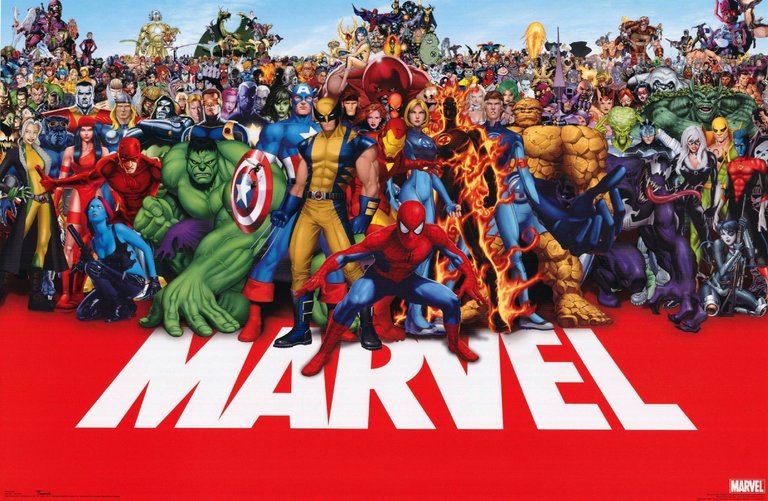
Today, after weeks of speculation, Disney confirmed it will acquire a majority of 21st Century Fox’s assets, including film properties and some its television businesses, in a deal worth $52 billion. Among other seismic shifts throughout the entertainment industry, Disney’s deal with Fox will bring the X-Men, the Fantastic Four, their respective villains, and several other characters back under the roof of the Disney-owned Marvel Studios, making this the first time in history that Marvel’s most popular superheroes and supervillains will share the same cinematic universe. This unlocks the possibility of telling stories that, like the showdown between Frost and Stark, previously could only exist in comic books.
Divided film rights forced both Marvel and Fox to take risks. Bringing them back together could put an end to that.
What’s important to consider about Marvel giving up its film rights back in the ’90s is that if it had held onto them and managed to dig itself out of financial demise to produce a movie like X-Men or Spider-Man, we probably would have never gotten the array of great Marvel movies we have today.
Throughout the ’80s and ’90s, the X-Men, Spider-Man, and to some extent the Fantastic Four were the faces of Marvel comics. The Avengers were basically a JV team, whose sales paled in comparison to those headliner properties. From a business standpoint, it makes sense to tap the most popular comic book superheroes for film adaptation — which Sony and Fox did with massive success. If Marvel held onto those rights, it may have never deviated away from movies featuring those heroes.
Because Marvel didn’t have the rights to Spider-Man or the X-Men, it had to think outside of the box and figure out which characters to promote on film. In Iron Man, they found a hero that was cut from a different cloth (sardonic, tech savvy, arrogant, damaged, etc.) than Peter Parker or Professor X’s mutant-rights warriors. Marvel extending that spirit of looking to less-expected heroes has resulted in many of its best films, from Guardians of the Galaxy to Thor: Ragnarok.
The flip side of that approach is borne out in Marvel’s cinematic strategy of having interlocking stories and heroes that come together for giant team-up movies like The Avengers, which made over $1.5 billion for the studio. However, that strategy can result in Marvel movies feeling like they’re more concerned with setting the table for future installments (see: Marvel seeding its films with Infinity Stones in the leadup to next year’s Infinity War), making a lot of its movies feel very similar or locked into a bigger system.
Fox’s X-Men aren’t locked into that system, nor does there seem to be an overarching narrative that the studio wants to accomplish with its X-Men movies the way Marvel wants to with its Avengers, leaving individual X-Men movies to establish their own distinctive approaches and personalities. X-Men: First Class is a stylish, charming superhero period piece set in the Cold War era. X-Men: Days of Future Past plays with time travel and the idea of changing history. Deadpool is a raunchy comedy full of butts, murder, and jokes about chimichangas, while this year’s apocalyptic Logan is a bloody Western that received rave reviews.
Yes, the freedom that Fox has given the X-Men has resulted in some clunkers, like 2009’s X-Men Origins: Wolverine. But it’s also resulted in superhero films that take risks, delve into different genres, and play around with different modes of storytelling. The results haven’t been consistent, but breakout movies like Logan and Deadpool are what happens when those risks pay off — and it’d be a shame if Marvel regaining control of the X-Men on film means those risks will stop being taken.
This speculation is, of course, based on what we’ve seen from both studios thus far — anything could happen once the X-Men are back under Marvel’s roof. The only thing we can know for certain is that we’re still a long ways away from seeing the effects of this sale on superhero movies at the theater: Marvel right now has a litany of movies already scheduled for release, including 2018’s Black Panther and Avengers: Infinity War, and further-out films like Ant-Man and The Wasp, Captain Marvel, the sequel to Avengers: Infinity War, the sequel to Spider-Man: Homecoming, and a Guardians of the Galaxy follow-up.
Fox has its own set of movies coming out — including X-Men: Dark Phoenix, New Mutants, and a Deadpool sequel — that appear, for now, to be going forward as scheduled. (Fox gave Entertainment Weekly a preview of X-Men: Dark Phoenix this past week, and teasers for New Mutants and the Deadpool sequel were recently released.) However, it’s still unclear if they’ll be officially released as Marvel movies, or what will happen to future projects after the acquisition.
What is clear with such a dense cinematic schedule already established, it’s unlikely Marvel could fit anything it wants to do with the X-Men before 2021 without disrupting its current schedule. That doesn’t mean that fans wouldn’t go see a Marvel-made X-Men movie in 2022 and beyond — they’ll just have to wait for it.
Congratulations @eversky! You have completed some achievement on Steemit and have been rewarded with new badge(s) :
Click on any badge to view your own Board of Honor on SteemitBoard.
For more information about SteemitBoard, click here
If you no longer want to receive notifications, reply to this comment with the word
STOPHi! I am a robot. I just upvoted you! I found similar content that readers might be interested in:
https://kopitiambot.com/2017/12/15/what-disneys-acquisition-of-fox-means-for-marvels-superhero-movies/